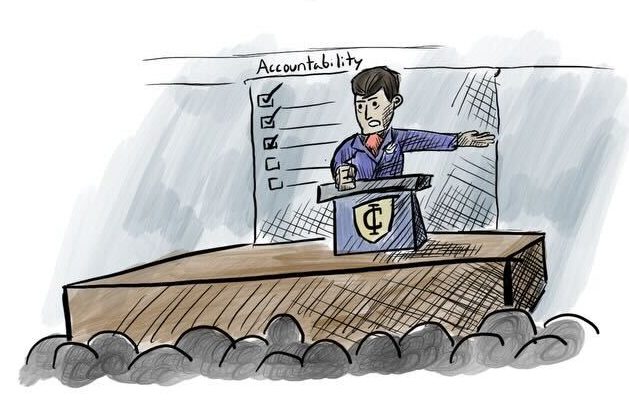For many college students, it may feel as though you have been inundated with information about the upcoming presidential election, the youth vote and the importance of using your voice to enact political and social change. The important issues that galvanize young voters and exhaustion surrounding political systems exist in an era of increasing national anxiety and turbulence.
While these feelings — trepidation, apathy, exhaustion — are valid, they cannot create inaction in the youth voting block or in our response to national and local political figures. Outside of the eyes fixed on the presidential race, college students should pay attention to local political figures. This includes student government officials.
Platform presentations for Ithaca College’s Student Governance Council were Sept. 12 and included various presentations from hopeful candidates. No matter the platform or position, it is important to be cognizant of both their main points and whether they live up to the initial pitch. The campaigning period ends Sept. 19. Voting for the candidates begins Sept. 19 and will run until Sept. 20. It is imperative that students exercise their right to be heard by researching the candidates and casting a vote. Higher voter turnout signifies a more informed electorate.
Connections with campus government are important — it is notable that the senior class had no one running for either class senator position and that eight total seats will remain open after elections. While this is a predicament that has increased because of the pandemic, the student body must reaffirm its commitment to improving campus culture and infrastructure through action.
But students’ careful scrutiny of the government should not stop there. Once senators are voted in, the student body needs to be cognizant of whether those officials actually accomplish their goals and respond if they do not meet the mark. Continued pressure and observation leads to the potential for improvement.
It is imperative that students participate in government organizations on campus. Without that action, students will not be able to create change.














